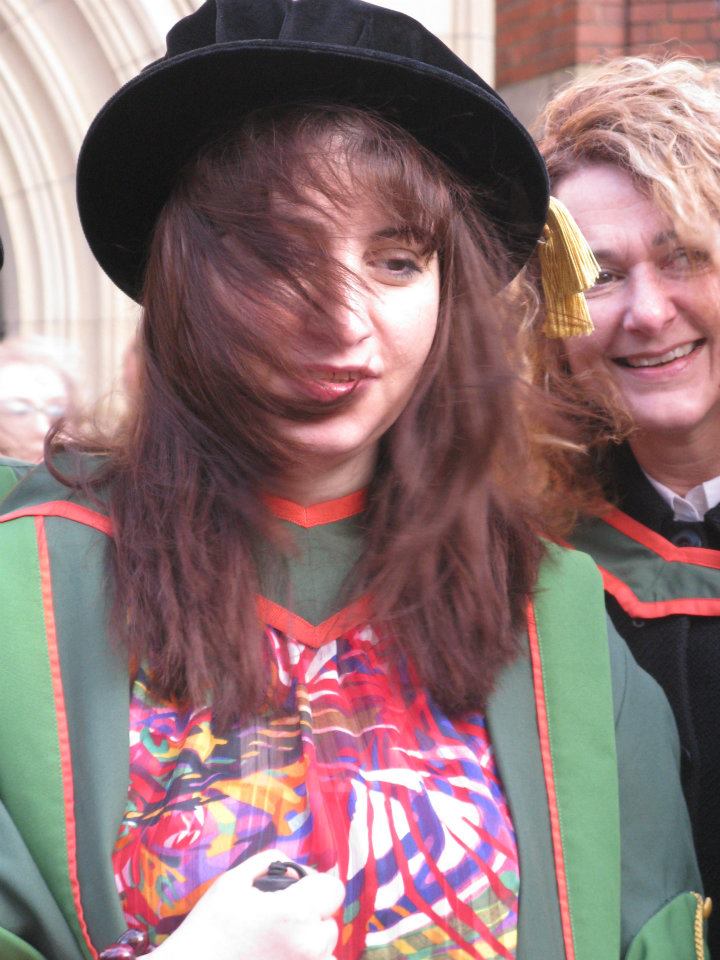Following the completion of the MA, I embarked on a PhD programme. In carrying out research and writing up my thesis I was confronted with a new set of challenges, which included the high cost of funding my support hours, and the lack of an accessible computer with appropriate reading software in the PhD student office.
As an international student, funding all of my courses presented a significant obstacle, one which was very difficult to overcome. I spent a great deal of my time applying to various sources for funding, and I mostly received rejection letters. This whole process, and the surrounding uncertainty, affected my health; as a result I had to apply for periods of suspension from my studies, hence the delayed completion of my PhD. However, first hand experience of these barriers also informed my PhD research and ultimately enriched the research.

I completed my PhD research in Disability Studies in December 2011, at the University of Leeds Centre for Disability Studies. My published thesis was entitled, ‘A qualitative study of the experiences of disabled international students in English universities’.
Using the qualitative methods of focus groups and semi-structured interviews, I investigated the experiences of Disabled international students at 11 British universities covering several different areas: information; access and funding; Disability services; learning and teaching; and non-disability support services including accommodation and social life. Subsequently, using the Social Model of Disability, I identified a range of barriers in participants’ university life, in particular those pertaining to education, Disability and physical environment. I also examined legislation such as the Special Educational Needs and Disability Act (SENDA) (2001), Equality Act (EA) (2010), as well as initiatives such as the Disability Equality Duty (DED) (2006) and available national and local policy in relation to each of the aforementioned categories. By analysing university and national documents and websites, I discussed extensively the policies of educational organisations in terms of both theory and practice.
As a Disabled international student myself, I examined how the participants’ double or sometimes multiple identities (Disabled, international, and often mature, students) disadvantaged them further, and how they might have felt empowered by more inclusive education practices. In concluding the thesis, I proposed a list of insights relating to inclusive educational practices for individuals, higher education institutions and policy advisors, and made a meaningful contribution to debates in the fields of Disability Studies and Education.
Thesis ‘A qualitative study of the experiences of disabled international students in English universities’